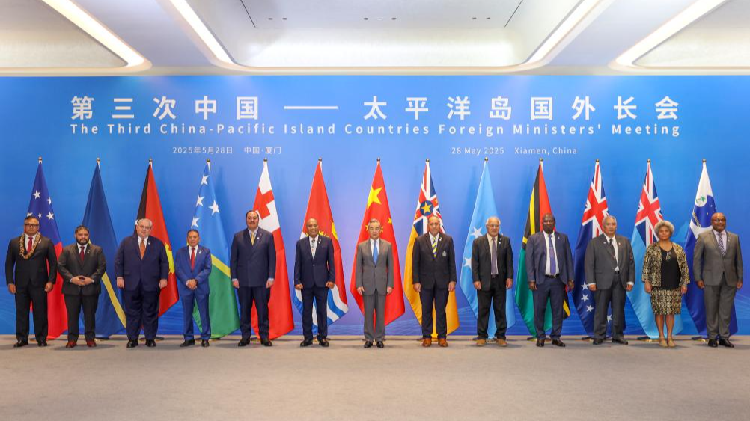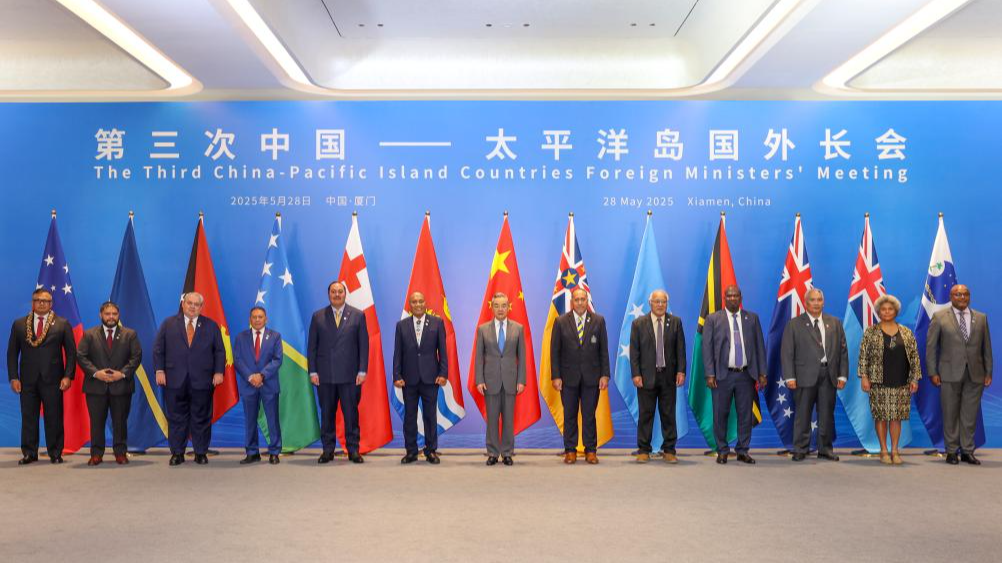Wang Yi Advocates for Strengthening the China-PICs Community with a Shared Future
Chinese Foreign Minister Wang Yi co-hosts Pacific Island Countries summit in Xiamen alongside Kiribati's President, signaling stronger regional ties.


Chinese Foreign Minister Wang Yi on Wednesday emphasized the importance of forging a China-Pacific Island Countries (PICs) community with a shared future during the Third China-Pacific Island Countries Foreign Ministers' Meeting. The event, held in Xiamen, southeast China’s Fujian Province, brought together ministers and officials from across the Pacific region. Wang, who is also a member of the Political Bureau of the Communist Party of China Central Committee, co-chaired the high-level discussions alongside President and Foreign Minister of Kiribati, Taneti Maamau.
During his address, Wang outlined a detailed six-point plan to advance regional cooperation. The suggestions included upholding mutual respect, prioritizing development collaboration, maintaining a people-centered approach to governance, promoting cultural and knowledge exchange, safeguarding fairness and justice, and fostering solidarity amid global challenges. He stressed that China will continue to adhere to the principle of non-interference in domestic affairs and offer unwavering support for the sovereignty, security, and development interests of Pacific Island nations.
Highlighting economic and developmental collaboration, Wang reiterated China’s readiness to work with PICs to implement the Global Development Initiative and to further high-quality Belt and Road cooperation. He called for the acceleration of bilateral free trade agreement negotiations, increased cooperation in agricultural and fisheries technology, and an expansion of tourism partnerships.
Wang also promised enhanced knowledge sharing in areas such as poverty reduction and local governance. He announced that China would carry out 200 "small and beautiful" livelihood projects in the region this year and deploy seven teams of medical professionals, including traditional Chinese medicine practitioners, to help improve healthcare services across the PICs.
This year marks the 50th anniversary since China began establishing diplomatic relations with Pacific Island Countries. Wang noted that these nations have always been regarded as good friends, partners, and brothers by China. Underlining the achievements of recent years, he stated that the comprehensive strategic partnership has been invigorated by the guidance of leaders from both sides, leading to new levels of cooperation and tangible benefits for the people of the region.
The foreign ministers attending the meeting expressed their gratitude for what they described as China’s valuable and consistent support. They highlighted that their cooperation with China is firmly based on mutual respect, trust, understanding, and sovereign equality. The ministers reaffirmed their commitment to the one-China principle and voiced enthusiasm about deepening joint efforts on infrastructure development, climate change mitigation, and green growth.
With both sides pledging to continue high-quality, collaborative projects under the Belt and Road Initiative, the meeting concluded with a renewed call to build a peaceful and prosperous Pacific region that stands resilient in the face of global changes and challenges.




